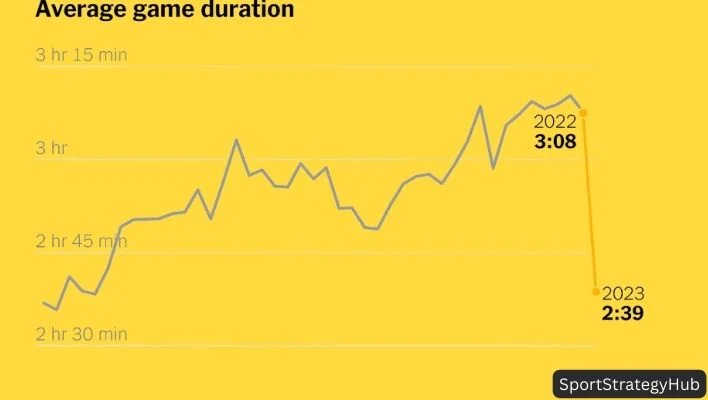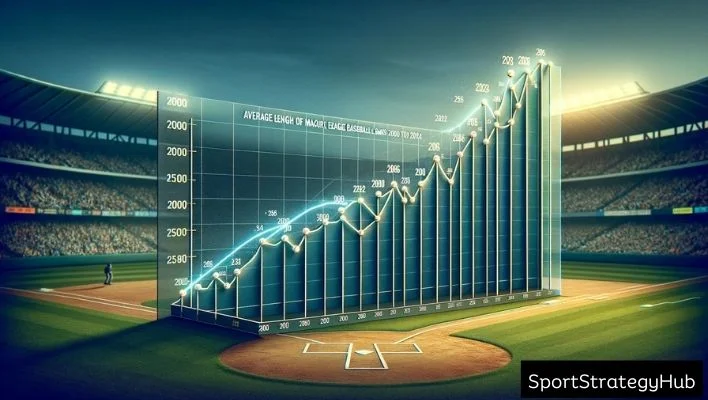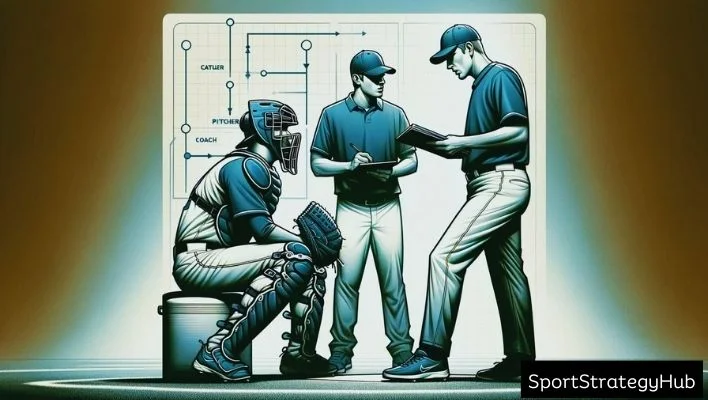How Long Does a Major League Baseball Game Last: Rules (2024)
Ever wondered about How Long Does a Major League Baseball Game Last? You’re not alone. The time it takes to complete a baseball game can vary, making it a topic of interest for many fans. This game’s unique charm lies in its unpredictable duration, deeply rooted in the sport’s strategy and pace. Baseball’s popularity isn’t just about the thrill of the game; it’s also about the sense of community and tradition it fosters among fans. In this easy-to-read guide, we’ll break down the factors that determine how long a game lasts, what makes MLB games special, and why millions keep tuning in or showing up to stadiums. Get ready to learn all about baseball’s enduring appeal and what to expect timing-wise when you watch a game.
The Basics of Baseball Time
Unlike other sports, baseball doesn’t have a game clock ticking away the minutes. Instead, the flow of time in baseball is determined by innings. Each game consists of nine innings, divided into halves, with one team batting in each half. The duration of each half-inning depends on how quickly the pitching team secures three outs, making each game unique in terms of time.
Average Duration of MLB Games
When it comes to the average duration of Major League Baseball games, the numbers have fluctuated over the years. In recent seasons, the average duration of a nine-inning game has been around three hours. However, it’s important to note that individual games can vary significantly based on various factors, including pitching duels, offensive firepower, and game strategies employed by teams.

Average Length of Major League Baseball Games from 2000 to 2024 (in hours)

Over the past two decades, Major League Baseball has witnessed fluctuations in game durations. From 2000 to 2024, the average length of a nine-inning game has ranged from just under three hours to slightly over three hours. This data demonstrates how the game has evolved and adapted to factors such as rule changes, player strategies, and fan preferences.
Length of MLB Season
The Major League Baseball season is a marathon, spanning from early spring to late fall. Each team plays a total of 162 games throughout the regular season, providing ample opportunities for players to showcase their skills. The length of the season, combined with the intensity of the games, places physical and mental demands on teams, making endurance a crucial aspect of success.
See Also: How Long Are Baseball Games
How Many Innings Does a Major League Baseball Game Last?
In a Major League Baseball game, the standard number of innings is nine. However, certain circumstances can lead to games going beyond this limit. For example, if the score is tied after nine innings, the game goes into extra innings until a winner is determined. This can result in thrilling extended battles, adding to the overall duration of the game.
How Many Innings Does a Minor League Baseball Game Last?
While Major League Baseball games typically consist of nine innings, Minor League Baseball games may have variations in their duration and structure. Depending on the league and level of play, games in the minor leagues can range from seven to nine innings. This difference allows for adjustments based on developmental needs and scheduling considerations.
Factors Influencing Game Duration
Several factors come into play when determining the duration of a Major League Baseball game. These factors include pitching duels, offensive strategies, defensive shifts, player injuries, weather conditions, and the overall pace of play. Understanding these influences can provide valuable insights into why some games are shorter or longer than others.
Pitching and Strategy

Pitching changes and strategic decisions made by managers have a significant impact on the pace of a baseball game. Introducing relief pitchers, making mound visits, and employing defensive shifts can contribute to longer game durations, while quick and efficient pitching changes can help speed up the game.
Commercial Breaks and Broadcasts
Broadcasts of Major League Baseball games often include commercial breaks and media timeouts, which can add extra minutes to the overall duration of a game. These breaks allow for advertising opportunities and provide viewers with additional analysis and commentary, enhancing the viewing experience but also elongating the game.
Extra Innings and Tiebreakers
When a game remains tied after the standard nine innings, it enters extra innings, where each team has an opportunity to secure a victory. These additional innings can significantly lengthen the game, creating more excitement but also potentially stretching the duration. Tiebreaker rules, implemented in some situations, aim to expedite the resolution of tied games.
Weather and Delays
Inclement weather, whether it be rain, thunderstorms, or excessive heat, can disrupt the flow of a baseball game, leading to delays or even game suspensions. These weather-related interruptions can extend the overall duration of the game, as players and officials wait for conditions to improve before resuming play.
New Rules To Speed Up the Game
In recent years, Major League Baseball has implemented and proposed several rule changes to address concerns about game length. These include:
- Pitch clock: Introducing a timer to limit the time between pitches.
- Restricted mound visits: Limiting the number of visits a team can make to the pitcher during an inning.
- Inning breaks: Instituting timed breaks between innings to maintain the game’s pace.
- Instant replay review: Streamlining the process to minimize delays during reviews.
- Proposed rule changes: Continual evaluation of potential modifications to further enhance the game’s speed.
See Also: How Many Positions in Baseball
The Fastest and Longest Games in MLB History
In Major League Baseball, the records for speed and endurance are markers of the sport’s rich diversity. The shortest game ever played zipped by in a mere 51 minutes, when the New York Giants faced the Philadelphia Phillies in 1919. Contrastingly, the longest game occurred during a 1984 showdown between the Chicago White Sox and the Milwaukee Brewers. It lasted an epic 8 hours and 6 minutes, spanning 25 innings. These games showcase the unpredictable thrill of baseball. One was a brisk sprint, the other a marathon, each unfolding in remarkably different ways. True fans value these records for showcasing the game’s surprises and captivating moments. They highlight baseball’s range from quick action to endurance tests.
FAQ
The duration of a baseball game can vary depending on various factors, but on average, a Major League Baseball game lasts around three hours.
A standard baseball game consists of nine innings, but if the game is tied after nine innings, it can extend into extra innings until a winner is determined.
The duration of one inning in baseball can vary depending on factors such as pitching changes, offensive strategies, and defensive play. On average, an inning lasts around 20 minutes.
High school baseball games typically follow similar rules to Major League Baseball, consisting of seven innings. The duration of these games can range from one to two hours.
Conclusion
In conclusion, many factors can change the length of a Major League Baseball game. These include pitching duels, offensive strategies, and weather conditions. While the average game lasts about three hours, some are shorter and faster-paced. Others are longer marathons that stretch the limits of time. To discover the excitement of baseball firsthand, join us. We’ll explore the question of how long a Major League Baseball game lasts.
